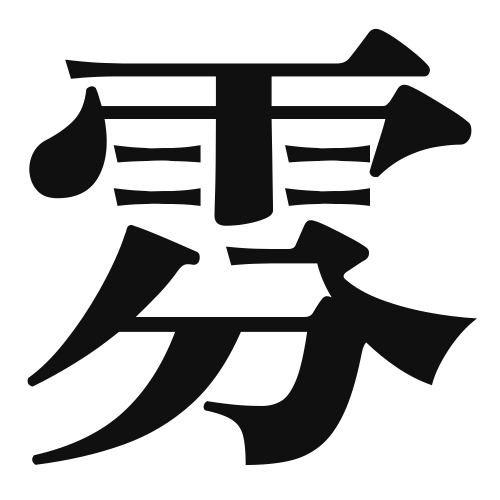1. Overview of Meaning
The kanji “雰” (pronounced “fun”) generally means “atmosphere” or “mood.” It is often used to describe the overall feeling or ambiance of a situation or environment.
2. Formation and Radical
Formation of the Kanji: The kanji “雰” is a phonetic compound (形声文字) that combines the radical for “cloud” (雨) with a phonetic component that suggests its pronunciation.
Radical: The radical of “雰” is 雨 (rain), which is often associated with weather or atmospheric conditions.
3. Examples of Usage
Common Words and Phrases: “雰囲気” (fun’iki) means “atmosphere” or “mood,” and is frequently used in various contexts.
Example Sentence in Daily Conversation: “このカフェはとても良い雰囲気ですね。” (Kono kafe wa totemo yoi fun’iki desu ne.) translates to “This café has a very nice atmosphere, doesn’t it?”
4. Synonyms and Antonyms
Similar Kanji: “気” (ki) also relates to mood or spirit, but it often refers to a person’s emotional state rather than the general atmosphere.
Opposite Kanji: “静” (shizu) means “quiet” or “calm,” which can be seen as an opposite in terms of atmosphere, especially if the atmosphere is lively or chaotic.
5. Cultural and Historical Background
Relation to Japanese Culture: The concept of “雰囲気” is significant in Japanese culture, where the atmosphere of a place can greatly influence social interactions and experiences.
Proverbs and Idioms: One common saying is “雰囲気を読む” (fun’iki o yomu), which means “to read the atmosphere,” highlighting the importance of understanding the mood in social situations.
